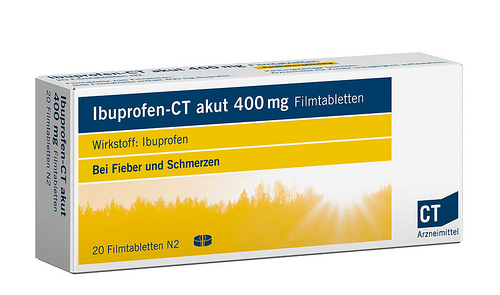When pain strikes, you need something that will handle it fast. All painkillers essentially have the same aim, but many of them are unique in the way that they work. Some are better for aches, some are better for sharp pains; some are even designed for specific pain in certain types of your body!
Knowing which one is right for you when you’re in agony whilst browsing at the shopping shelves can be the difference between effective pain relief, and another restless day or night. Here’s a guide to 7 painkillers in the UK market that could help you when you need them the most.
1. Ibuprofen
Ibuprofen has fast become one of the most common painkillers on the market today. With seemingly ‘more effective’ properties than its predecessors, it is great at providing relief for mild to moderate pain.
Migraines, toothaches, aches and inflammations are particularly well combated by ibuprofen. They contain anti-inflammatory properties so can help reduce the pain cause by swelling, strains and sprains. Most ibuprofen is taken orally, but you can even get it in gels and sprays for more topical applications.

2. Diclofenac
When deep ache and pain occurs, diclofenac is at its best. There are many different disorders that it can help to relieve pain from, and most are of an inflammatory nature. Anyone suffering from arthritis, gout, kidney stones or muscle and joint issues will benefit from the properties that diclofenac can bring.
The painkiller can also be used to treat eye inflammations that are nonbacterial, and helps to combat pain and irritation in the form of an eye drop!
3. Tramadol
Tramadol is a big hitter compared to our previous pain relievers. It’s used to treat moderate to severe pain, and has even been linked to positive effects on symptoms of depression and anxiety!
But whether you have a mood disorder or not, Tramadol is a highly effective pain reliever. It can come in the form of tablets, powders, gels and creams, and it is regularly combined with other ingredients to create a solution that benefits specific needs. Tramadol acts fast, and if you’re suffering from severe pain, then there’s few alternatives that will be as effective or quick to the rescue as this painkiller.
4. Co-codamol
Co-codamol is a fantastic type of analgesic that combines codeine and paracetamol to create something new. Co-codamol works best against mild to moderate pain, and can help bring comfort when you need it most, especially if others aren’t doing the trick.
You can take Co-codamol with a combination of certain other painkillers for the maximum impact. Sometimes, other types don’t work completely effectively, and sometimes a little help from this drug is just what the doctor ordered. Just make sure you don’t combine this with any other drugs containing Paracetamol or you could end up taking an accidental overdose.
5. Aspirin
Aspirin works in a unique way to help control lots of different symptoms. It has numerous applications, and is most commonly known for being great against some types of headache. While it can be hit and miss dependent on the cause of the discomfort, when it’s used correctly it can be extremely effective. Perhaps the most successful use of aspirin is headaches that are stress and tension related.
For certain people, aspirin may even help prevent heart attacks and strokes, and has even been cited to help slow progression of heart disease. This is why a small dose is often used in treating cardiovascular disease.
6. Paracetamol
Paracetamol quickly became one of the most common household drugs, along with ibuprofen. While it doesn’t have as effective anti-inflammatory results as other painkillers like aspirin, its pain relief has been proven to be very effective and it has qualities which help to reduce a fever.
7. Naproxen
If you’re feeling feverish, then naproxen is the pick of the painkillers for you. It’s great to reduce the symptoms of inflammation and stiffness, and can help fight cramps, arthritis and is commonly used to help the pain and inflammation caused by kidney stones.

The latest research has also suggested that naproxen has some anti-viral properties, and could be effective in the fight against influenza.
Conclusion
There’s no such thing as the ‘best’ painkiller; each one is effective in its own field, and there’s a perfect use for them all. If you’re suffering from mild to moderate pain then you know your options from reading the guide. Ibuprofen, diclofenac and many more are great at dealing with this level of discomfort.
If you’re coming down with the flu then paracetamol will get your temperature down, and when you’re being hit hard, you can strike back with the pain-crushing power of Tramadol. Whatever you need, this guide will help you get the right relief, and on the road to recovery in no time.

